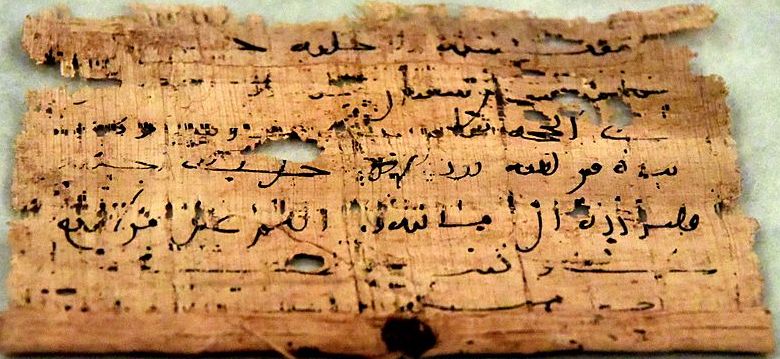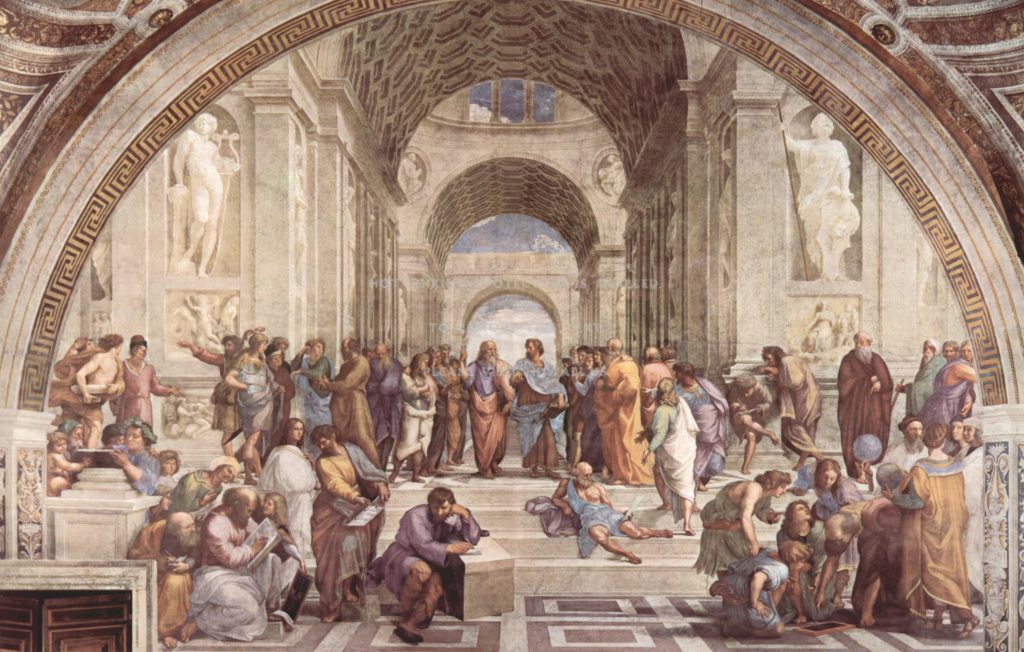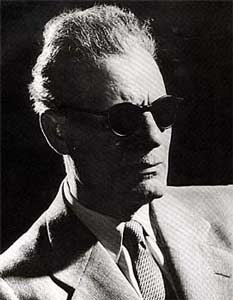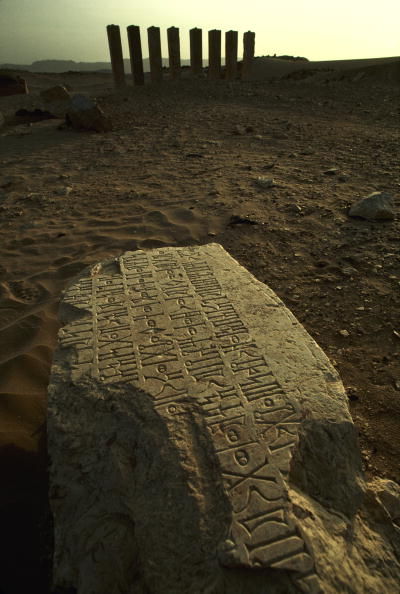
In March 1926 Professor Taha Hussayn, an expert in Arabic literature, presented the results of his research in a book entitled ('On Pre-Islamic Poetry'). In this work he concluded that most of the poetic odes associated with the era of the jāhiliyya (that is, the pre-Islamic era) were forgeries fabricated following the rise of Islam and only attributed to the jāhiliyya era.
AS IS WELL KNOWN, the ‘miracle of the Qur’ān’[1] resides in its Arabic language in that the Quraysh were the ‘tribe of Muhammad the Messenger of Islam’, and their poets were superior in their mastery of the language and in their poetry. According to what Muslims have handed down to this day the Qur’ān constitutes the most eloquent example of the Qurayshi language, with its exalted literary style and linguistic form. This is evidence of its being a celestial book, as the Muslims claim, and consequently the Quraysh lost the challenge and thus believed that Muhammad was a Messenger from God, and entered into Islam.
At the beginning of the study that Taha Husayn presented he stated:
I shall in this study adopt the research method of modern scholars of science and philosophy. I wish to fashion in literature this philosophical methodology initiated by Descartes in searching for the truth of things, whereby the researcher divests himself of everything that he previously knew.
He begins his study with a number of questions, for instance he says:
I will start with the Qur’ān since I consider this to constitute the true, unfabricated historical source, and I see in it verses which challenge the Jews, the Christians, the Zoroastrians and the polytheists of Quraysh. All of these were present in the Arabian Peninsula. So why do we not find in pre-Islamic poetry any reference to their religious customs in the pre-Islamic period? The Qur’ān has verses featuring the Qurayshis’ response and their disputes with Muhammad, but we see no trace of this in pre-Islamic poetry!
He then takes up another important point: were the Quraysh really the original masters of the Arabic language and its greatest exponents in this period until it was perfected by the miracle of the Qur’ān? Taha Husayn replies certainly not, for there were Arabian Arabs (the Qahtani tribes) who were the first to speak the Arabic language and whose home was in the Yemen. There were also Arabicized Arabs (the ‘Adnān tribes) who learned the Arabic language from the Arabian Arabs. Examples of these are Ismail, the ancestor of Muhammad and the son of Ibrahim and the entire Arabian Peninsula; these learned the language from the Yemenis. Consequently, we may conclude that Muhammad and his family are not from the Arabian Arabs but are from the Arabicized Arabs. This means that regarding the miracle of the Qur’ān, if it is true, the fact that its place of origin is the city of Mecca does not make it miraculous since if the Qur’ān intended to claim supremacy in the Arabic language, the revelation would have taken place in Yemen amongst the original speakers of the language.
Whenever a secularist presents his views, in the eyes of the fundamentalist this constitutes a crime
He also puts forward another question – the mention of Ibrahim and Ismail in the Qur’ān and the Torah – and discusses their historicity. He says: “The mere mention of their names does not mean necessarily that they actually existed” and comes to the conclusion to the effect that, as a result of the clash of the Jews and Christians in the Arabian Peninsula with the idolaters, the appearance of a religion that would solve this conflict was bound to occur, a religion that would be an extension of both Judaism and Christianity, “and this is the reason for the mention of Ibrahim and Ismail.”[2] In addition, the religion makes its appearance in the midst of the idolaters, specifically Quraysh – and Muhammad was one of the sons of Hashim, the most powerful clan in the Qurayshi tribe.
The above is a very basic introduction to the research that Dr Taha Husayn presented in his book On Pre-Islamic Poetry, a book which stirred up the fundamentalist current in Egypt with the official religious body of Al-Azhar at its head. Taha Husayn was declared an infidel and incitements were made against him. The book was banned from being studied in universities. On 30th May 1926 Shaykh Khalīl Hasanayn, a student at the Higher Department at al-Azhar, submitted a complaint to the Attorney General in which he accused Dr Taha Hussein, the professor at the Egyptian University, of authoring a book with the title Fī al-Shiʽr al-Jāhilī (‘On Pre-Islamic Poetry’) which “impugned the Qur’ān.” On 5th June 1926 a report of the scholars of al-Azhar was attached to the complaint which confirmed that the book contained an overt slander against the Qur’ān and against the Prophet and his progeny. It demanded that active legal measures be taken against this slander against the official religion of the state.
At the time Taha Hussein was travelling abroad and when he returned on 19th October 1926 the investigation was carried to its conclusion. Had the complaint brought against him been lodged today, the fate of Taha Hussein would have been imprisonment with hard labour. But luckily for Dr Taha, Egypt at that time maintained to a certain extent a broad margin of freedom, which allowed the Chief Prosecutor Nur al-Din to conclude that what Taha Hussein had written was a scholarly study which did not contradict the faith or contain any legal infringements. Thus, following an investigation lasting a number of months, the office of the Attorney decided on 30th March 1927 that the complaint submitted against the professor was to be considered a matter exclusively for the university’s board of directors.
This is one example, among hundreds, of the ongoing conflict between fundamentalism and secularism. Whenever a secularist presents his views, in the eyes of the fundamentalist this constitutes a crime. The reason for this is that the fundamentalist is intellectually bankrupt while the secularist possesses a wealth of intellect. Any idea put forward by a secularist in any one of life’s manifold arenas comes up against the monolithic view of the fundamentalist – which is takfīr. And this is in addition to a torrent of abuse ranging from threats of imprisonment to physical abuse and violence to, on occasion, murder.
Prior to the 1952 revolution the ceiling of freedoms in Egypt was very high compared to what it is today. The task of the fundamentalist was a difficult one, for he was like a fish out of water suffocating in the air. Oppression, to the fundamentalist, is as water to the fish, while freedom to him is akin to the air that chokes it.
In the 1923 constitution there are articles which defend freedom of belief, opinion and expression, and these are precisely the articles mentioned by the Chief Attorney, and on the basis of which Taha Hussein was exonerated:
Article 12 states that freedom of belief is absolute;
Article 14 states that freedom of opinion is guaranteed for all, and every citizen has the right to express his thoughts in speech, writing, depiction or otherwise.
In fact the wording of questions that were directed at the time to Dr Taha Hussein began like this: “Is it possible for Sir to…” or “is Sir of the opinion that…”. That is, the investigator knew in advance that the investigation was merely a routine measure, and that the one seated before him was a thinker and not an accused person. But it would not be strange to find the following proposals put forward by those tasked with drawing up the new Egyptian constitution:
Article 1: Egypt is a Shūrā state
Article 2: Egypt is an Islamic state
Article 3: Dominion belongs to God!
All of this is in order to create an environment conducive to fundamentalist movements, and at the same time one that is not conducive to the secular current, so that they are able gain absolute and unopposed dominion over society. All that would therefore remains for the secular trend would be to leave Egypt, as the Salafist shaykh Muhammad Husayn Yaʽqūb put it: “Anyone who doesn’t like it can go to Canada!”

Suggested Reading
The secular trend has engaged in major battles with the fundamentalist current, and we are still in a historical struggle with them that has yet to end. Over the last 50 years most of the battles have ended in favour of the fundamentalist current, particularly after the revolution of January 25 2011. But I would like to say to them that the blow that doesn’t break our backs will strengthen us, for we will continue the fight. And I would like to remind them of the old saying that what goes up, must come down. The decisive conclusion to this struggle will be in the favour of the secular trend, for the march of history is on the side of secularism.
[1] The ‘miracle of the Qur’ān’ (iʽjāz al-Qur’ān) is the belief that the Qur’an is of such high quality in content and form that it cannot be imitated and that, as such, it constitutes a miracle bestowed on the Prophet Muhammad. Linguistically, the language of the Qur’ān came to be held as the yardstick for precision and excellence, so that the achievements of poets were measured against the Qurʾān’s miraculous qualities. The importance of this issue, and its sensitivity, was that its inimitability was used as evidence of its divine origin, while the issue of its time and place of revelation was bound up with an association with the language of the pre-Islamic odes, considered until the revelation of the Qur’ān to be the yardstick of Arab linguistic excellence. If the authenticity of the pre-Islamic odes was called into question, as in the work of Taha Husayn, it would have an impact on the assumptions concerning the time and place of the revelation of the Qur’ān, and whether this corresponded to the traditional account understood by Muslims the world over. (Ed.)
[2] One of the arguments in Fī al-Shiʽr al-Jāhilī which generated outrage was the issue of the Abrahamic origins of Islam as described by Taha Hussein: “In ancient times, there was a war between the Arabs and the Jews that ended in a truce, after which the two sides sought to create a bond of kinship between them, towards which end this story was invented. The story appealed to the Quraish tribe who felt it in their interests to establish that Mecca had a glory such as that of ancient Rome and because it relates that the Ka’ba was constructed by Ibrahim and Ismail… When Islam arrived and was resisted by the pagans, it took advantage of this story to establish the bond between Islam and the two ancient religions, Christianity and Judaism, thereby fortifying its power to overcome Arab paganism.” (Dr Yunan Labib Rizk, ‘A Diwan of contemporary life,’ Al-Azhar, May 24th) (Ed.)


